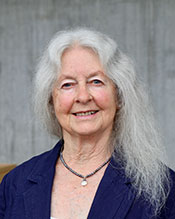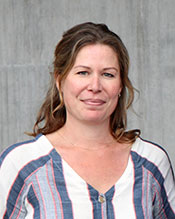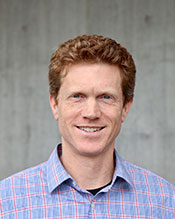Clinical trials and immunotherapy: How research changes the face of cancer
July 23, 2019
Knight School is a series of public science talks designed to educate, entertain, and inspire audiences with stories told by Knight Cancer researchers, clinicians and patients.
Clinical trials are transforming the way we treat cancer and advancing research and treatments such as immunotherapy. These cellular therapies offer new hope for patients by improving the immune system’s ability to fight cancer. Join us for a discussion about clinical trials, stem cell transplants and CAR T-cell therapy, and find out how an immunotherapy clinical trial has helped one survivor fight ovarian cancer.
Presenters:

Sherry Hanson, a cancer survivor and advocate
Sherry Hanson was diagnosed with epithelial ovarian cancer in 2009. Since her diagnosis, she has undergone surgeries, radiation, chemotherapy, and immunotherapy as part of a clinical trial. She promotes education and awareness with the Ovarian Cancer Alliance and serves as a scientific research advocate with the OHSU Knight Cancer Institute. “Persistence should be my middle name,” she says. “After three bouts of cancer I know one thing to be true. You have to be a fighter.”

Sara Murray, supervisor, OHSU Cellular Therapy Laboratory
Sara Murray manages the cellular therapy laboratory at OHSU which oversees the transfer of human cells to heal or replace damaged tissue or cells. Over the past 16 years, she and the lab team have seen how immunotherapy—from stem cell transplants to CAR T-cell therapy—are transforming the way we treat cancer. In 2018, the OHSU Knight Cancer Institute became one of a handful of certified treatment centers in the nation to offer a gene transfer therapy, Kymriah, for a common form of lymphoma.

Elie Traer, M.D., Ph.D., assistant professor of medicine in the OHSU School of Medicine
Elie Traer is a hematologist and oncologist at the OHSU Knight Cancer Institute who specializes in treating patients with acute myeloid leukemia. He leads clinical trials that evaluate targeted therapy with kinase inhibitors in leukemia patients and studies how the bone marrow microenvironment provides sanctuary to leukemia cells by providing critical survival signals, which eventually lead to disease resistance and relapse. He is working to develop new therapies that more effectively target cancer cells within the microenvironment and improve existing therapy.
